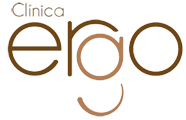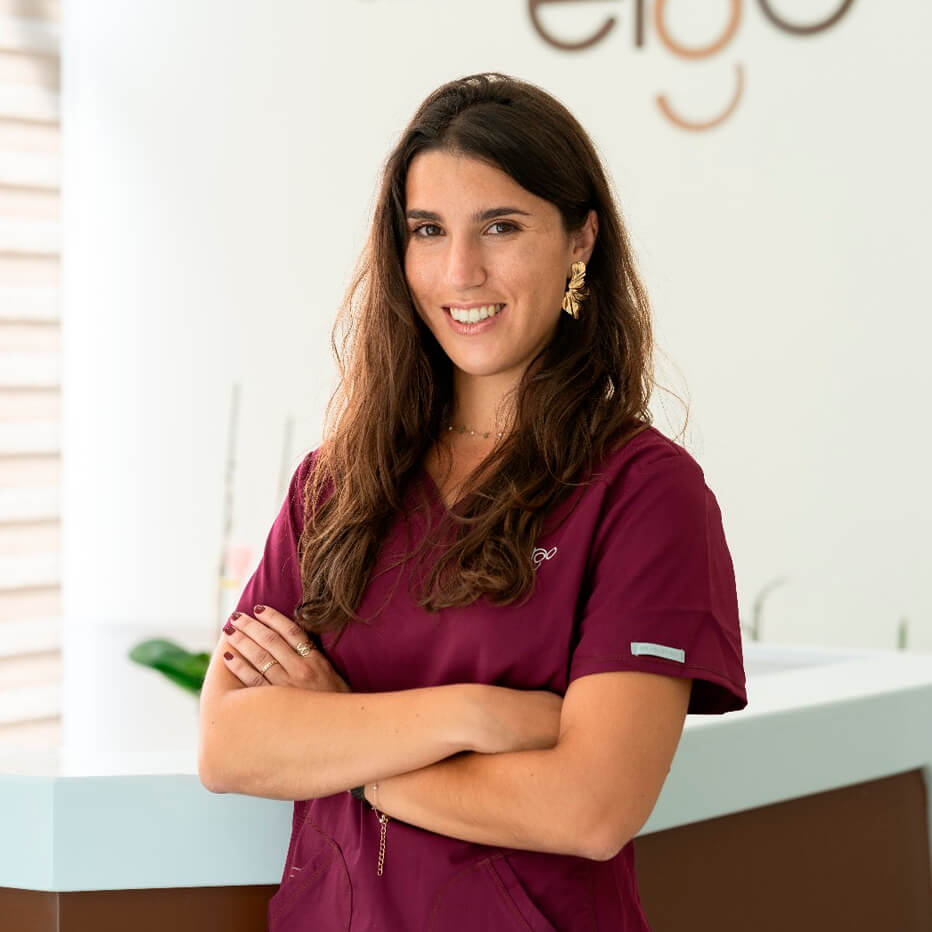Analysis
Your results in 60 minutesClinical analytical tests in Gijón, Asturias
Wide range of analytical tests in less than 60 minutes
Yes, we can provide you with a wide range of analytical tests in less than 60 minutes. At the ERGO Clinic we have our own analysis equipment and we offer uninterrupted hours for blood collection between 8:00 am and 8:00 pm.
If you need to perform hormonal tests, such as basal profile, antimüllerian hormone, pregnancy test, FSH, estradiol, progesterone,… Make an appointment with our nursing team and we will give you the results in a few minutes.
Contact us without obligation, we are here to help you.
Analytical tests in 60 minutes
In-house laboratory
Wide variety of tests
General analytics
At the ERGO Clinic (Gijón, Asturias), we perform all kinds of analytical studies, from the most common parameters of a general biochemistry (glucose, cholesterol, urea, transaminases,…) to more complex studies such as tumor markers (CEA, Cea 19.9, Cea 15.3, Cea 125, AFP…), liver markers (hepatitis A, B and C), viral diseases (HIV, human papilloma, fractionated proteins,…), etc.
If you have a referral from your doctor, make an appointment with our nursing team and get your results quickly.
- Hematology
- Hemostasis and coagulation
- Blood biochemistry
- Urine biochemistry
- Immunology
- Oncology – tumor markers
- Allergies
- Rheumatology
- Prenatal diagnosis
- Bone metabolism
- Genetics, drug controls
- Determination of drugs of abuse
- Infectious diseases
- Microbiology
Call us and we will give you an appointment with our nursing team.
Women’s tests
Hormonal profile
A basic hormonal study to know the basal state of the woman’s body (FSH, LH, Estradiol and TSH). Results are delivered in less than 60 minutes.
Antimüllerian hormone
It is a key test to know the ovarian reserve and help predict the response to stimulation, and at the ERGO Clinic we can give you the result in less than 60 minutes.
Ovarian genetics
A novel genetic test that reports the genetic variants that a patient has and indicates the most appropriate type of medication for ovarian stimulation, thus obtaining the best results in terms of the number of eggs in fertility treatments.
ERA test of endometrial receptivity
1 in 4 patients who have to resort to assisted reproduction techniques have a displaced window of implantation, which leads to implantation failure and/or repeated miscarriages. This test can be used to diagnose this displacement and subsequently perform a vitrified embryo transfer on the correct day.
ALICE Test
It analyzes the pathogens of Endometritis, usually related to assisted reproduction patients. This pathology is not easily diagnosed; to date this new test has the same diagnostic efficacy as the sum of the 3 tests performed so far.
EMMA Test
Altered uterine microbiota has recently been linked to implantation failure and/or repeated miscarriages. With the result of this novel test, it is possible to know the levels of lactobacillus (beneficial for a correct implantation) and to indicate to the patient a correct prophylaxis directed to the microbiota whose levels are altered.
EndomeTRIO Test
It combines the three previous tests (ERA, ALICE and EMMA) to offer a more complete approach to pathology at a better price.
Karyotype
It may reveal chromosomal abnormalities and provide an explanation for the couple’s sterility or infertility. It is performed by taking a simple blood sample.
Basic carrier test
This test helps determine the risk of having a baby with a genetic disease. Indicates whether the parents carry one or more recessive genetic mutations. Carriers are healthy individuals, but when both parents share a mutation in the same gene, their offspring may be affected.
Basic carrier test for the couple
If this test is to be performed on both the female and her male partner (or the patient and her corresponding donor), this much more economical option can be chosen.
Portares plus test
The rationale is the same as the basic carrier test but the number of diseases to be tested for increases.
Carrier plus test for the couple
It is performed when both members of the couple (or of the patient with the corresponding donor)
Men’s tests
Seminogram
Performed by our embryologists. Because of its simplicity, it is the first test that is indicated to the couple for the infertility study. The seminogram evaluates the production of spermatozoa in the seminiferous tubules of the testicle by studying parameters of quantity (concentration), quality (motility) and morphology.
Basic Seminogram
The easiest way to know sperm concentration, motility and ejaculate volume. In addition, pH analysis and a report of the presence of other cell types or macroscopic manifestations of possible altered parameters are performed.
Seminogram with morphology
It includes a basic semen analysis plus the sperm morphology study, which indicates the percentage of spermatozoa with normal forms, and delivery of results in consultation with an explanation of the results by our embryologists.
Seminogram with REM
In addition to the semen analysis with morphology, a sperm capacitation study is added to know the behavior of the sample before an assisted reproduction treatment, whether it is for insemination or in vitro fertilization. The delivery of results is done in consultation with explanation of the same by our embryologists.
Seminogram with cytometry
It is the most complete semenogram. It includes the evaluation of concentration, motility, volume and pH, as well as a study of sperm capacitation (REM), a study of sperm DNA fragmentation (associated with poor embryo quality) and a study of sperm aneuploidy (related to implantation failure or repeated miscarriages). The delivery of results is done in consultation with explanation of the same by our embryologists.
Sperm capacitation test (REM)
Also performed by our embryologists. It is a complementary study to the seminogram, which consists of “washing” the semen of all the fluids and substances it contains and leaving only the spermatozoa, which are placed in a medium rich in nutritive substances. The count of motile spermatozoa obtained (REM) in this test allows us to know how many of them will be useful for Assisted Reproduction techniques.
Freezing and survival test
It consists of performing a semenogram on the sample, freezing it at -196ºC and performing a new count once thawed. This allows to know the survival of spermatozoa to this process that may be necessary in many assisted reproduction techniques.
Sperm morphology study
Only the evaluation of normal spermatozoa forms can be performed.
Single-stranded sperm DNA fragmentation
Refers to breaks or lesions in the genetic material of the sperm. The greater the number of lesions, the lower the integrity of the genetic material and the lower the chances of a full-term pregnancy.
Double-stranded sperm DNA fragmentation
Sometimes DNA breaks are deeper and their relevance can be known by this technique.
Sperm maturity test
Using a surface functionalized with hyaluronic acid, the number of sperm that bind to it (mature sperm) versus those that do not (immature sperm) is counted. It is a very interesting technique for repeated cycles or suspicion of high sperm immaturity.
Trio-seminal analysis
This option allows the analysis of 3 of the most innovative parameters together, single-stranded DNA fragmentation, sperm maturity and sperm aneuploidy.
FISH of spermatozoa
It allows the analysis of 5-7 chromosomes of the spermatozoa using a sample of the patient’s semen.
Karyotype
It may reveal chromosomal abnormalities and provide an explanation for the couple’s sterility or infertility. It is performed by taking a simple blood sample.
Carrier test
This test helps determine the risk of having a baby with a genetic disease. Indicates whether the parents carry one or more recessive genetic mutations. Carriers are healthy individuals, but when both parents share a mutation in the same gene, their offspring may be affected.
Bacteriological and biochemical tests
Further examination (semen culture or blood test) to detect infections that alter semen quality.
SRY gene analysis
Identification of the Y chromosome.
Y gene microdeletions
Identification of Y chromosome microdeletions related to low sperm count in the ejaculate.
Genetic analysis in patients with reproductive problems
Genetic study of Y chromosome microdeletions, genetic study of cystic fibrosis, DNA fragmentation of spermatozoa, study of chromosomal abnormalities in spermatozoa by means of FISH, etc.
Genetic analysis in gamete donors
Study of carriers of the most common genetic diseases.
Preimplantation Genetic Diagnosis (PGD)
It allows the genetic study of the embryo before being transferred to the uterus in order to prevent some genetic diseases or alterations that may compromise the viability of the embryo.
Prenatal Genetic Diagnosis (PD)
In case of possible chromosomal alterations and/or family history of molecular genetic disease.
Genetic Counseling
We carefully study the case of those patients affected by a familial genetic disease, advising them about their reproductive future, as well as the application of any of the possible genetic diagnosis techniques.
Analysis in Gynecology
Pregnancy test
Detection of β-hCG with a numerical value in blood from the first miss.
We deliver the result in 2 hours and advice on the same.
Antimüllerian hormone
A specific gonadal marker that provides information about a woman’s ovarian reserve and helps to predict her response to hormonal ovarian stimulation treatment with delivery of the result in less than 2 hours and advice on the same.
Vaginal cytology
Also called a Pap smear, it is a painless test in which a sample of cells is taken from the cervix with a small brush to detect cancerous or precancerous lesions. Even vaginal infections are detected.
Preconception preventive test
Study of carriers of recessive genetic diseases to rule out the possibility of the birth of children with severe hereditary pathologies.
Non-invasive prenatal study
Detection of Down syndrome and other aneuploidies in the 24 chromosomes plus microdeletions in maternal blood.
NACE Test - Igenomix
Analysis of chromosomes 13, 18, 21, X and Y.
Down syndrome, Edwards’ syndrome, Patau’s syndrome, Monosomy X (Turner’s syndrome), and fetal sex.
NACE 24 Test - Igenomix
Analysis of the total of 24 chromosomes, being able to detect not only the most common pathologies such as Down Syndrome, Edwards Syndrome, Patau Syndrome, Monosomy X (Turner Syndrome) but also others associated with other chromosomes, as well as fetal sex.
niPOC Abortive Remnant Test
First trimester miscarriages are more common than is often thought. The main cause is genetic alteration in the embryo, but it is not always possible to perform a curettage to collect the abortive remains and analyze them (or the woman prefers not to undergo this procedure).
In ERGO we have the possibility of knowing the genetic status with a simple blood test to the mother. It can be done from 6 weeks of pregnancy (as long as the remains have not yet been completely expelled), and with results in 7 days.
Preeclampsia
Early detection using angiogenic markers PLGF and sFlt-1.
Controls during pregnancy
Blood and urine tests at every required moment of gestation, analyzing the results by our gynecology team.
Glucose overload or O'Sullivan Test
Test performed (at least) between 24 and 28 weeks of pregnancy to identify the risk of gestational diabetes.
Also called “the sugar test”, it consists of ingesting a high concentration of sugar and performing analytical determinations after 1, 2 and 3 hours. If the values are altered, there are risks for the mother and the fetus, so it is important to perform it.
At ERGO we can do this, and we even have the possibility of using a room in thecenter with a television to spend the time between extractions.
If you have a referral from your regular doctor, you can come to the ERGO Clinic to have your tests done by our nursing team with a fast delivery of results.
Call us or contact us to find out how to proceed. We will be happy to help you.
Need more information?
We are a team of more than 15 professionals specialized in assisted reproduction and women’s health. Do you have any doubts? We invite you to meet us, your first visit is totally FREE.

